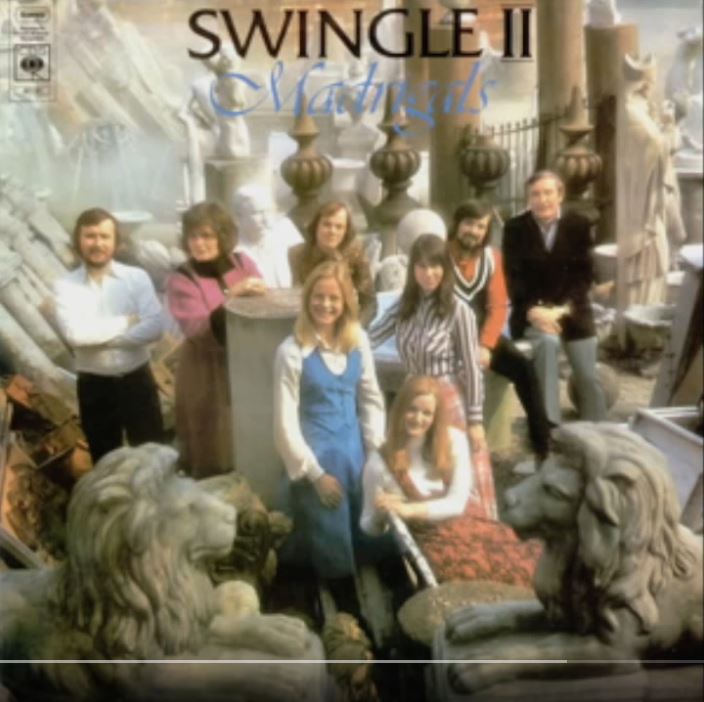Rotes Blut und weißer Käse
Einige Musikstücke basieren auf dem Madrigal "Il est bel et bon" von Pierre Passereau (1509 - 1547).Bei den Stücken handelt es sich um das Vocalensemble der "Swingle Singers", die zunächst als französische Gruppe entstanden, ab 1973 sich jedoch zu einer englischen neu formierten. Die Musikeinspielungen sind von ihrer 1974 veröffentlichten LP "Madrigals" (CBS 80147). Damals hieß diese Gruppe "Swingle II".
http://www.landini.org/singers/groups/swingle.html

 Das ganze Album
Das ganze Album
(07.06.1904 - Monte Paradio (fiktiv) Schweiz)

"Mir ist ein fein´s braun´s Maidelein gefallen in´mein´Sinn. Wollt Gott, ich sollt heut bei ihr sein, mein Trauren führ´dahin. Kein Tag noch Nacht hab ich kein´Ruh, das schafft ihr´schön Gestalt, ich weiß nicht, was ich fürder tu´, mein fein´s Lieb macht mich alt... "


Il est bel et bon, bon, bon, bon commere, mon mari. Il estoit deux femmes toutes de pays disans l'ung a l' autre: avez bon mari. Il est bon, bon, bon , bon commere, mon mari. Il ne me courousse, ne me bat aussi, Il faict le mainage, il donne aux poulat, et je prends ne plaisir. Commere, est ce porire, quant les poulleilles crient: petite coquette quès secy. Il est bon, bon, bon, bon,commere, mon mari.
zu deutsch:
Er ist schön und gut, Frau Base, mein Mann. Es waren zwei Frauen vom Lande, die eine sagte zur andern: Sie haben einen guten Mann. Er erzürnt mich nicht, er schlägt mich auch nicht. Er versorgt den Haushalt, er füttert die Hühner und ich mache mir Vergnügen. Frau Base, ist das nicht zum Lachen, wenn die Hühner schreien: Kleine Kokette, was ist das hier? Er ist schön und gut, Frau Base, mein Mann.

1. Hälfte des 16. Jahrhunderts
Quelle: "Vingt et
huyt chansons musicalles a quatre parties". Herausgeber:
Pierre Attaignant, Paris 1534
Anmerkung: Die Abweichungen von der heutigen Schreibweise im
Liedtext
und Titel der Quelle, sind auf die frühe Entstehungszeit
zurückzuführen
und keine Rechtschreibfehler.
- "Was wissen Sie schon von edlen Trieben geläuterter Natur!"
- "... aber mit dem reinen Evangelium! Und das ist doch wohl die Hauptsache!"
- Auf dem Monte Paradieso ist nichts verschlossen.
- Ich war in ungewöhnlich guter Form

Ein Wort von Ward Swingle zu dieser LP:
The madrigals in this album were composed between 1490 and 1620. They come from England, France, Spain and Germany, and are joined by a common theme of love... love that is sometimes hopeful, sometimes noble, often thwarted and mocking.
The madrigal itself first appeared in Italy in the 14th Century, though the exact etymology of the word is not known. It has since been used to describe a large variety of secular part-song writing. Instruments were often used in performance, both as accompainment and in doubling voice parts. In the present adaptions the accompainment consists of bass guitar, drums and various keyboard instruments: electric piano, harpsichord and ARP synthesizer, the latter sometimes imitating old instruments.
In this particular set of madrigals there ist often a mocking note in the French ones, browknitting anguish in the Spanish, sweet nostalgia in the English and high-minded purity in the German.
For the most part, the names of the composers are not on everyone's lips. Monsieur Passereau's first name, for example, has been lost, and the composer of "Cargado de Tantos Males" remains entirely anonymous.
But these madrigals speak out to us across a span of some 400 years in a most beautiful way. The music remains fresh, and the words deal with the ever-current trials of the human heart.